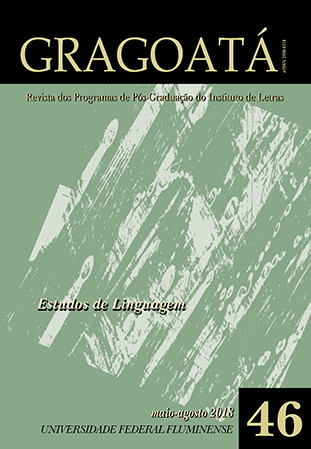A cognitive reading of the process of non-pathological first language loss
DOI:
https://doi.org/10.22409/gragoata.v23i46.33585Keywords:
Language Acquisition, Language Attrition, Connectionism.Abstract
The process of non-pathological loss of a mother tongue, here taken as L1 attrition, is a phenomenon that has only recently been investigated more thoroughly in the linguistic studies. Because of this theoretical gap, then, we seek, in this work, to interpret L1 attrition in the light of a paradigm of cognition, more specifically the connectionist paradigm, an approach not yet made in the literature of the area. In our investigation, we can see that the connectionist paradigm, sensitive to the inherent dynamicity of language, especially by predicting a complex linguistic representation and by considering the effective use of language as the trigger for language development, is a theoretical model capable of explaining language attrition.
---
Downloads
Downloads
Published
How to Cite
Issue
Section
License
Authors who publish in Gragoatá agree to the following terms:
The authors retain the rights and give the journal the right to the first publication, simultaneously subject to a Creative Commons license CC-BY-NC 4.0, which allows sharing by third parties with due mention to the author and the first publication by Gragoatá.
Authors may enter into additional and separate contractual arrangements for the non-exclusive distribution of the published version of the work (for example, posting it in an institutional repository or publishing it in a book), with recognition of its initial publication in Gragoatá.

Gragoatá is licensed under a Creative Commons - Attribution-NonCommercial 4.0 International.











